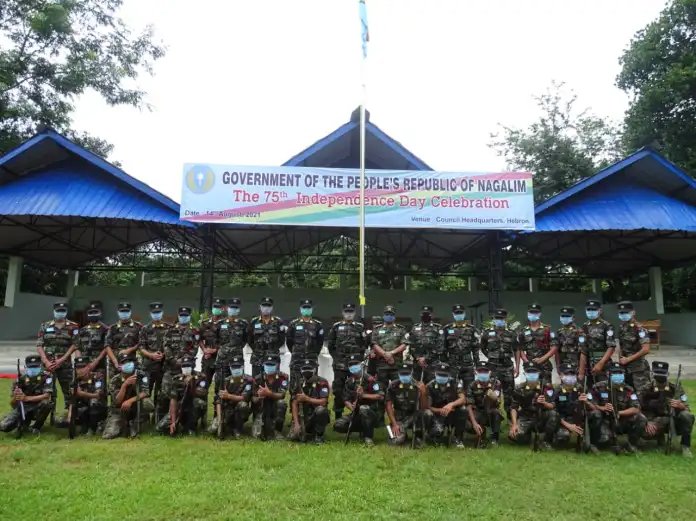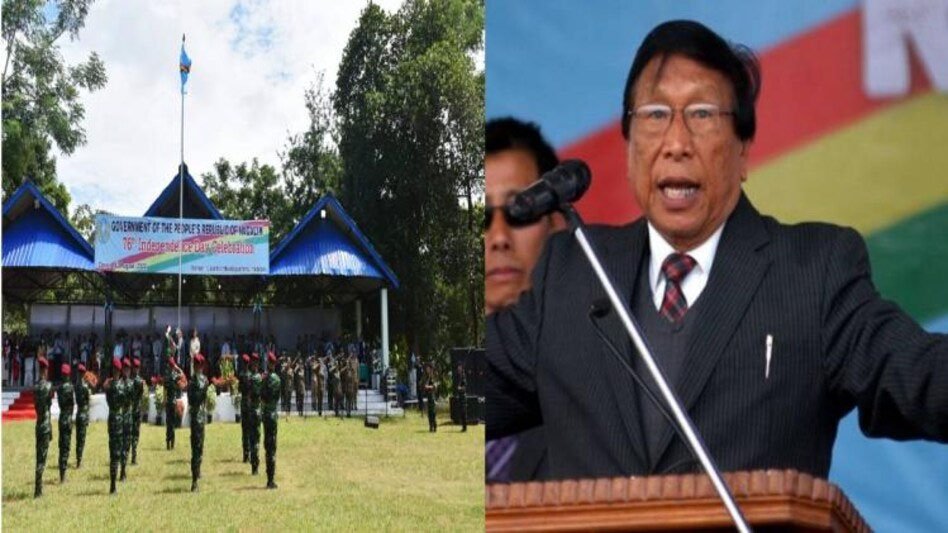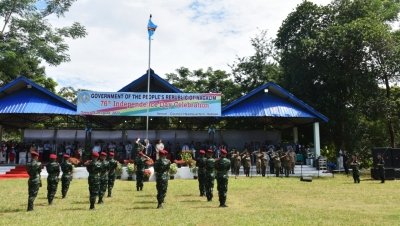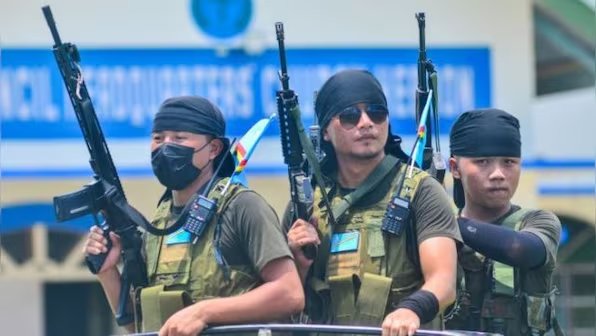DIMAPUR, Aug 4: On the occasion of the “thanksgiving programme” recently at camp Hebron commemorating the the signing of the Framework Agreement of August 3, 2015, with the Government of India, NSCN-IM chairman Q. Tuccu said, “The Naga people must understand how the Framework Agreement entails a huge political significance for the Nagas and for the Government of India as well”.
Addressing the gathering, Q. Tuccu said that, nine years ago they made a tryst with destiny when the historic Framework Agreement of August 3, 2015, was signed between the Government of India and National Socialist Council of Nagalim (NSCN). He said the agreement aims to define the political and national identity of the Nagas as supported by “our historical and political rights” and with due recognition given by the Government of India. “The day has once again come before us to redeem our pledge to stand by our rights. This agreement bears immense political value as it was done in the manner to correct or rectify the past mistakes. Unfortunately, the Government of India’s stand is getting more unsteady with the passage of time, desperate to interpret the Framework Agreement according to their interest and convenience. This has become the crux of the issue and the reason for the inordinate delay in the implementation of Framework Agreement as agreed upon,” he added.
The NSCN-IM chairman then expressed appreciation to “every one of you for your resilience and fortitude to stick to our guns as dictated by your conscience and spirit of sacrifice”. He also said political chicanery Nagas have had enough in the hands of India. “Therefore, we are being extra cautious not to allow another such treachery to happen again. This is the reason why Framework Agreement was given so much political significance as it will lead to an Indo-Naga political solution where our pride as a nation is well safeguarded,” he added.
Q. Tuccu then said NSCN-IM was successful in making the Government of India understand and admit that the Naga issue is a “political issue” and not “law and order” problem of India. He further said this strengthens “our position” to start the political talks to discuss pure politics of the Indo-Naga relationship as supported by correct historical perspectives. “May I remind you that when the political talks started, the first 5 years involved tough talking by NSCN negotiating group led by Chief Negotiator Th.Muivah, putting India in defense of the indefensible. We asserted our rights in no uncertain terms after doing away any cloudy vagueness on the historical and political rights of the Nagas. By doing so, we aim not only to enhance the understanding of the Naga political issue but also to hammer out an agreement that is honorable and acceptable to both the Nagas and India with deep mutual respect and understanding,” the NSCN-IM chairman also said.
Finally, the political talks reached the most exciting and revealing point when The Amsterdam Joint Communiqué of July 11, 2002 recognized and acknowledged Nagalim unique history and the situation, the NSCN-IM leader stated. “The official recognition of the unique history led to the signing of the historic Framework Agreement of August 3, 2015, under the watchful eyes of the Prime Minister of India Mr.Narendra Modi. The Prime Minister also delivered an impressive speech expressing his excitement for having solved the longest freedom movement in South Asia,” he added.
The Framework Agreement says, ‘The government of India recognizes the unique history and position of the Nagas,’ Tuccu explained.
“By unique position, it means the position and situation of Nagalim is political, because Nagas are never Indian either by conquest or consent. Naga had not accepted the Indian constitution and joined the Union of India. Significantly, it was mutually agreed that the violent conflict was not intentionally started by the Nagas. The Nagas started the resistance movement to defend the forcible occupation of Nagas by India. The historical mistake of India in looking into the Naga issue as a “law and order” problem of India was finally set aside for good,” Q. Tuccu stated.
According to Q. Tuccu, the Framework Agreement says, both sides have understood each other’s respective positions and are cognizant of the universal principle that in a democracy sovereignty lies with the people. “And inherently, it is an acknowledged fact that the sovereignty lies with the Naga people”.
The NSCN-IM chairman then said, “As the Government of India admits the historical fact that sovereign Naga people had not given their consent to join the Indian Union, the question of accepting the Indian constitution does not arise”. Thus, acknowledging the position of the Nagas and appreciating the intricacies of the Indian system, the government of India, during the tenure of the then Prime Minister of India, Dr.Manmohan Singh, proposed the option of solving the problem on the basis of the principle of shared-sovereignty, which was subsequently signed under the leadership of the present Prime Minister, Narendra Modi on August 3, 2015, he pointed out.
“Let there be no confusion about shared sovereignty. It means, the sovereign Indian and the sovereign Naga people will share sovereign power in some areas as defined in the competencies. How it protects the pride of the Naga people as a sovereign nation will unfold once the Framework Agreement is implemented in spirit and action,” Tuccu also said.
Recognising the national identity of the Nagas and admitting that the Naga people had rejected the Union of India offered to them by the Constituent Assembly of India, the Government of India proposed for an enduring inclusive new relationship of peaceful co-existence of the two entities, the NSCN-IM claimed.
Explaining certain terms, Q. Ticcu said, “By inclusive, it means- it embraces all Nagas wherever they are including all political groups. This also includes those forest lands transferred arbitrarily out of Nagaland. By new relationship, it means a new relationship based on the Framework Agreement. By co-existence of two entities, it means –co-existence of two peoples-Indian and Naga people with their respective political systems and governances”.
On the question of Naga national flag and constitution, it is a matter of universal custom that flag and constitution are constituent parts of sovereignty, Q. Tuccu said. “There should be no ambiguity about it. Hence, competencies are being worked out on the principle of the Framework Agreement”, he added.
Q. Tuccu then said that, nine years down the lane, the waiting game never seems to end. However, notwithstanding this deviation from what has been agreed upon with the world as the witness, NSCN is still standing fast and simply refused to be cowed down into submission, he asserted. “We shall not allow anything to dampen our spirit to forego our God-given sovereign identity as reflected in the Framework Agreement. We shall be failing our historical responsibility as the torchbearers of Naga political movement if we become vulnerable for others to exploit,” he further asserted.
Tuccu then said that time and again they “have made our stand very clear that Framework Agreement shall be the basis for Naga political solution”. He said “we must stand guard against any attempt to cause dilution or misinterpretation to undo the very meaning of the Framework Agreement”. Above everything, NSCN acknowledges the Almighty God who is in control of all things and the true authority over “our struggle for justice and identity” as a people and as a nation, the NSCN-IM leader stated. “He (God) is the Creator and Sustainer of the entire universe. Let us therefore, not lose our faith in Him because God does not forsake those who seek him. Let us continue building our faith that He will work all things together for good at the time chosen by Him,” Q. Tuccu added. (NNN)












